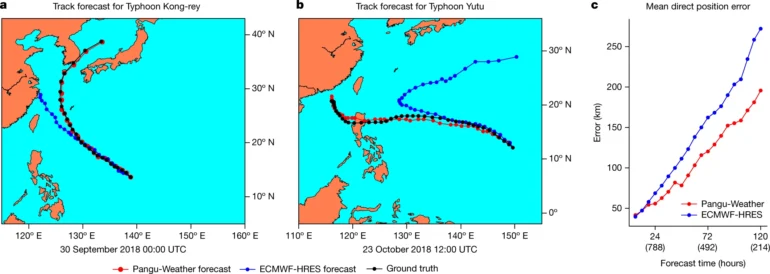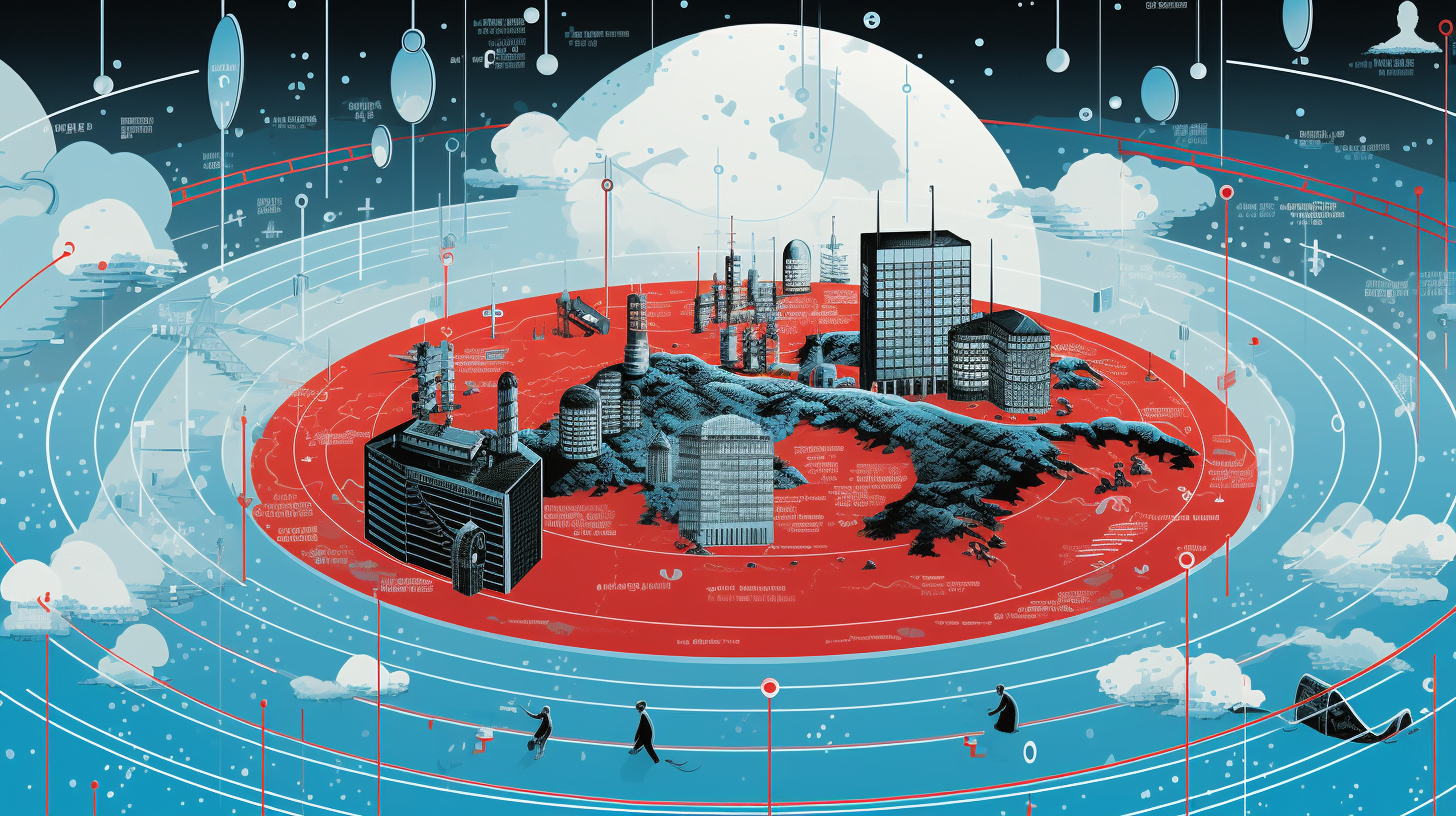AI is seen as a "quiet revolution" in weather forecasting and could be a game-changer for the industry, according to a European weather center.
The European Centre for Medium-Range Weather Forecasts (ECMWF) is now working with Chinese technology company Huawei to deploy AI-based forecasting models.
Huawei's Pangu weather model online since July
Huawei's AI model "Pangu-Weather" went live on the European Meteorological Center's website back at the end of July. Compared to conventional numerical forecasting methods, a paper in Nature attested to the model's higher accuracy and 10,000 times faster prediction speed.
Pangu-Weather can also predict the weather from one hour to seven days in advance, providing forecasts for temperature, humidity, wind and more.
The decision of including Pangu-Weather in their forecasting is partly due to the model’s high performance and the centre recognising AI’s significant potential in this field. Extensive comparative testing between April and July of this year revealed that the Pangu model showed advantages in several accuracy indicators and extreme weather forecasts. This seems to be why the European centre made the decision to adapt the model.
Tian Qi, Huawei's AI chief scientist
Currently, Pangu-Weather can provide global weather forecasts every second, covering aspects such as humidity, wind speed, temperature, sea level pressure, etc., Tian said. It also shows "outstanding performance" in predicting disasters such as typhoons, cold waves, heat waves and more.
AI detects new patterns in weather data
AI models could extract new patterns of atmospheric development from vast amounts of data that humans cannot detect. This could improve forecasts and overcome the accuracy limitations of numerical models, says Tian.

Dr. Florian Pappenberger, head of forecasting at the European Meteorological Center, sees AI as a game changer for meteorology. While Pangu Weather is often more accurate when it comes to general trends, traditional models are sometimes better at predicting details, such as typhoon trajectories.
Still, AI will play an increasingly important role in the future, he said. Huawei sees itself as a key player in this development and is also in talks with the China Meteorological Administration about cooperation.
AI has long been on the rise in weather and climate research. As early as 2020, Google unveiled a model that would predict weather data with pinpoint accuracy in real-time. More recently, Stanford University unveiled climate predictions for the next decade based on an AI model. Recently, IBM and NASA published AI models for climate research.






